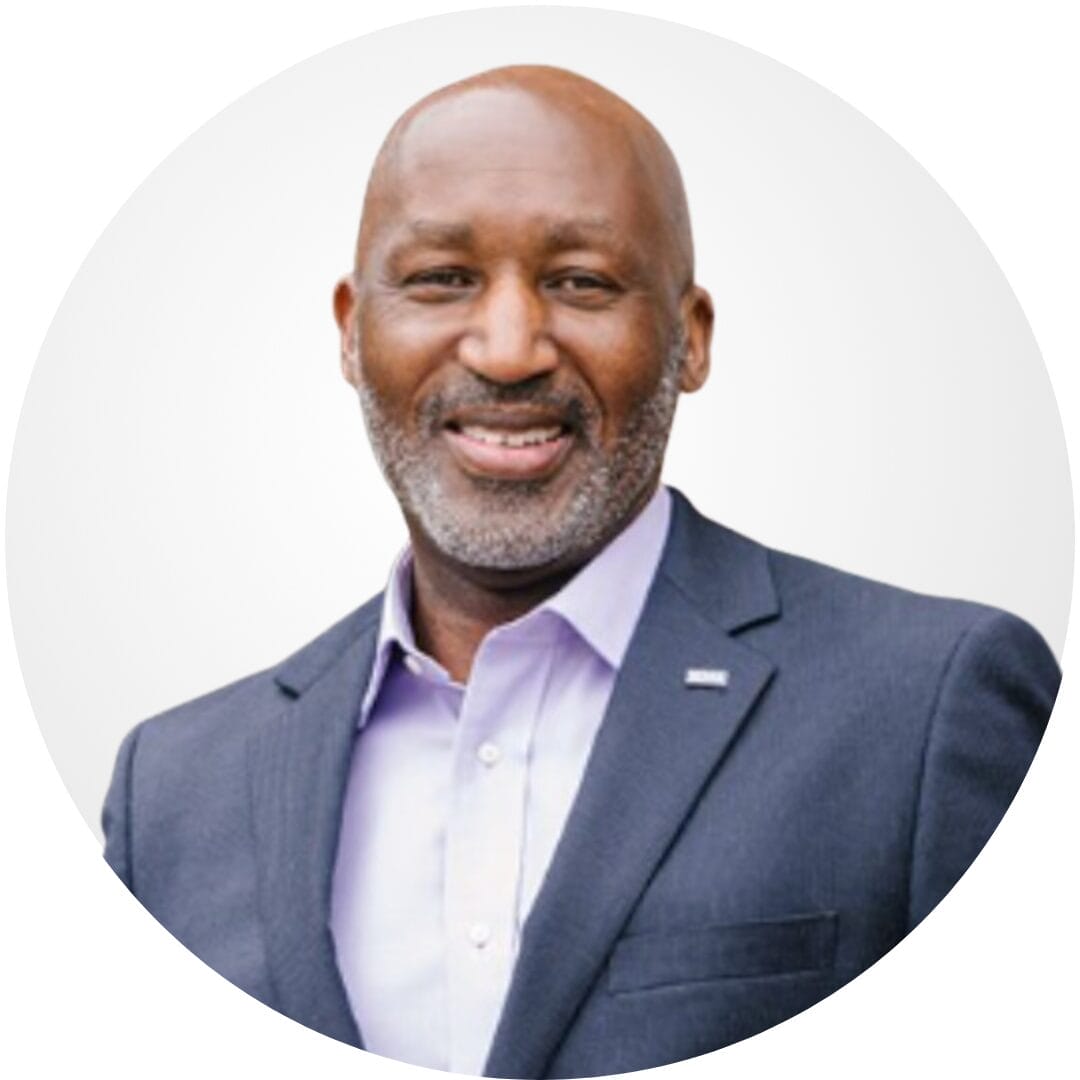The elderly population in the U.S. is steadily growing, with an estimated 82 million Americans expected to be over 65 by 2050. As life expectancy rises, more individuals require ongoing care and support, which has led to a surge in demand for elderly care services.
Traditional care facilities often struggle with capacity and personalized attention, driving a growing shift towards home-based solutions. This trend allows seniors to age in place while receiving essential medical attention and personal support within the comfort of their homes.
As the demand for elderly care technology rises, the future of home health care is evolving to meet the needs of seniors efficiently. Families and caregivers are turning to home health care options that offer safety, comfort, and easy accessibility. Personalized care plans, remote health monitoring, and in-home rehabilitation are becoming standard practices, driven by the preference for aging at home rather than in institutional settings.
Elderly care technology is playing a critical role in this transformation. Innovations like telehealth, remote monitoring devices, and smart home systems empower caregivers to monitor seniors’ health in real-time. These technologies help detect early signs of health concerns, facilitate timely intervention, and provide peace of mind to families.
As technological advancements continue, home health care will be even better equipped to support the aging population and their specific needs.
Elderly care technology is becoming an essential part of modern home health care, addressing several critical needs. With the growing number of elderly individuals requiring care, there is a rising demand for technological solutions that bridge the gap between limited healthcare professionals and increasing patient needs.
Technologies such as remote monitoring, medication reminders, and fall detection systems allow healthcare providers to extend care beyond in-person visits, creating a more responsive and supportive environment for seniors. These advancements empower caregivers to offer real-time assistance and ensure continuous monitoring, significantly improving elderly care.
The impact of digital transformation in elderly care services is undeniable. Elderly care technology is enabling healthcare providers to offer more personalized, timely, and efficient care. By integrating these tools into home health services, elderly patients gain increased independence, experience fewer hospital visits, and see improved overall health outcomes.
As we move into 2025, the role of elderly care technology will continue to shape the future of home health care, making it an indispensable part of the system.
Digital platforms allow seniors to access healthcare from home, reducing the need for frequent clinic visits.
Elderly care technology enables real-time monitoring of vital signs, helping caregivers detect issues early and respond swiftly.
Telehealth services make it easier for seniors to stay in touch with their doctors, improving overall health outcomes.
Tech-driven data analysis allows for individualized care plans that address the specific needs of elderly patients more effectively.
With continuous monitoring and timely interventions, elderly patients can avoid unnecessary hospital readmissions, reducing health risks.
Top trends in elderly care technology include AI-driven health monitoring, smart homes, virtual care platforms, and robotics. Below, we have mentioned a few trends in elderly care technology.
Telehealth is transforming elderly care by providing seniors with access to virtual care without needing to visit a clinic. The growth in virtual care services offers numerous benefits for seniors, including reduced travel, quick access to medical professionals, and more frequent check-ins. As healthcare shifts towards a more patient-centered approach, telehealth solutions are becoming indispensable for elderly patients, particularly those with mobility challenges.
Additionally, remote health monitoring devices are revolutionizing how continuous care is delivered to seniors. Devices that track vital signs, such as heart rate, blood pressure, and oxygen levels, allow healthcare providers to monitor patients in real-time, identifying issues before they become emergencies. This technology ensures that elderly patients receive the care they need without compromising their independence, playing a crucial role in the future of home health care.
Related read: RPA for Healthcare: Use Cases & Benefits in 2025
AI is becoming a crucial component of elderly care technology, helping prevent health issues before they escalate. AI-powered predictive analytics can analyze health data patterns to detect early warning signs, enabling proactive intervention. This approach reduces hospital visits and improves seniors’ quality of life by allowing healthcare providers to address issues before they worsen.
AI-driven personal care assistants are transforming elderly care. These virtual assistants offer support with medication reminders, daily scheduling, and companionship. As this elderly care technology advances, it will support seniors and caregivers, helping maintain independence while ensuring care needs are met.
Wearable technology is becoming a valuable tool in elderly care, providing real-time tracking of vital signs and activity levels. Devices like smartwatches and fitness trackers can monitor heart rate, sleep patterns, and physical activity, helping seniors stay active and healthy. Caregivers can receive alerts if anything abnormal is detected, allowing for immediate action if necessary.
Real-time health data from wearables is helpful for healthcare providers and for family members. Caregivers and family can monitor their loved ones from afar, offering peace of mind and ensuring that seniors are safe. This level of insight and transparency is making wearables a staple in elderly care and is expected to shape the future of home health care.
Robotics are stepping into elderly care, assisting with daily tasks like cleaning, cooking, and mobility. Robots designed for home care can help seniors maintain their independence by performing physically demanding chores that might otherwise require a caregiver’s help. These advancements allow seniors to stay in their homes longer while reducing the need for constant supervision.
Automation is lightening the burden on caregivers by taking over repetitive and time-consuming tasks. Automated systems for managing appointments, monitoring health, and even performing simple household duties mean that caregivers can focus more on providing personalized care.
Related read: The Rise of AI and Robotics in Healthcare
Smart home technology is becoming a key player in ensuring the safety and independence of elderly individuals. Devices like smart thermostats, lighting, and security systems can be controlled remotely, allowing seniors to manage their home environments without difficulty. Emergency systems that alert caregivers or family in case of a fall or health issue add an extra layer of safety, making smart homes a critical aspect of elderly care.
By integrating smart technology, seniors can continue aging in place with confidence. The ability to live independently while having a support system in place allows elderly individuals to remain in their homes longer, which is a major goal for many families and caregivers alike. This trend is shaping the future of home health care as smart homes become more common and accessible.
Medication management is often a challenge for elderly patients, but technology is offering solutions to ensure adherence and prevent missed doses. Automated pill dispensers, for example, provide timely reminders and only release the correct dosage, reducing the risk of medication errors. These devices can alert caregivers if a dose is missed, ensuring that someone can follow up.
Tools like these are essential for elderly individuals managing multiple prescriptions. By offering reminders and tracking medication use, these systems reduce the likelihood of health complications due to missed or incorrect dosages. As medication management becomes more advanced, it will continue to play a vital role in improving elderly care and supporting independent living.
Elderly care technology is becoming a crucial part of ensuring the well-being of seniors at home while supporting caregivers in managing tasks more efficiently. As we look to the future of home health care, new trends are making it easier for families and caregivers to provide high-quality care to their elderly loved ones.
One of the most significant benefits of elderly care technology is its ability to provide real-time monitoring, giving families peace of mind. Devices such as wearable fall detectors and home monitoring systems allow caregivers to keep track of their loved ones remotely. This technology ensures that help can arrive quickly in case of an emergency, reducing the risks associated with seniors living alone and offering caregivers reassurance when they can’t be physically present.
Technology has streamlined many caregiving tasks, making it easier for caregivers to manage their responsibilities. From smart pill dispensers that ensure medication is taken on time to scheduling apps that help organize appointments, these innovations save caregivers time and reduce the chance of errors. By automating some of these daily tasks, caregivers can focus more on providing personal attention and emotional support to seniors, improving the overall caregiving experience.
Elderly care technology doesn’t just support caregivers—it significantly improves the quality of life for seniors. Smart home devices, like voice-activated assistants, allow seniors to control their environment easily, promoting independence. Additionally, health monitoring tools can track vital signs, ensuring that any changes in health are detected early. This allows seniors to enjoy their time at home with more comfort and security, delaying or even preventing the need for institutional care.
Communication between caregivers and healthcare providers is essential for managing a senior’s health effectively. Elderly care technology facilitates this by providing easy ways to share health data and updates. Telehealth platforms, for instance, enable caregivers to consult with doctors without needing to transport seniors to the clinic. This helps ensure that medical advice is followed and that caregivers feel supported by professional guidance when needed.
Caring for an elderly loved one can be overwhelming, especially for family members balancing caregiving with other responsibilities. With elderly care technology, family caregivers can rely on tools that reduce their workload. Remote monitoring and smart alert systems allow them to oversee their loved one’s well-being without constantly being on-site. This reduces stress and gives caregivers the freedom to manage other parts of their lives while ensuring that seniors are safe and well cared for.
One of the exciting aspects of elderly care technology is the ability to personalize care. Devices can now be tailored to fit the specific needs of an individual, whether it’s through adjusting medication reminders, creating customized care schedules, or setting personalized activity goals. This level of care customization helps seniors maintain their routines and preferences, contributing to a higher sense of satisfaction and well-being as they age at home.
Challenges in adopting elderly care technology include privacy concerns, high implementation costs, user resistance, and the need for caregiver training.
One of the major challenges in adopting elderly care technology is the digital divide. Many seniors struggle with accessing and using modern devices due to limited familiarity with technology. While some have adapted, others face difficulties navigating apps and digital tools. Bridging this gap is important to ensure that all seniors can benefit from advancements in home healthcare technology.
With more personal health information being stored and shared through digital platforms, privacy and security have become top concerns. Seniors, in particular, are more vulnerable to data breaches and cyber threats. Ensuring that elderly care technology prioritizes data protection is crucial for building trust and providing peace of mind to both seniors and their families.
Introducing new technology into elderly care isn’t just about providing the tools—it’s about ensuring both caregivers and seniors are equipped to use them. Caregivers often need training to effectively operate new devices, while seniors may require extra guidance and support. A lack of training can lead to frustration, ultimately slowing down the adoption of beneficial tools.
Wearable technology, such as health monitors and fall detection devices, is becoming more common in elderly care. These devices allow caregivers to track vital signs, detect emergencies, and offer real-time updates on a senior’s health. By 2025, we can expect a growing reliance on these tools to promote independent living while ensuring safety and well-being.
Smart home technologies like voice-activated assistants and automated lighting are gaining popularity among seniors who wish to age in place. These systems make daily tasks easier and safer, helping seniors maintain independence while reducing the risk of accidents. The future of home health care will likely see even more integration of these solutions to support seniors in their own homes.
Telehealth has made a significant impact on home health care, particularly for seniors who may have mobility issues or chronic conditions. Remote consultations allow seniors to access medical professionals without needing to leave their homes, making health care more accessible. As telehealth technology evolves, it will play an even greater role in the future of home health care.
While AI is sometimes viewed with caution, its role in predictive health monitoring is growing. For elderly care, AI can help detect patterns and predict health issues before they escalate, allowing for early intervention. Although there are still concerns about its widespread use, AI-driven health monitoring will likely shape the future of home health care in the coming years.
One of the key hurdles in adopting elderly care technology is ensuring that it integrates well with existing healthcare systems. Many new technologies need to communicate effectively with traditional medical records and healthcare providers. Overcoming these integration challenges is vital to ensuring a smooth, coordinated care experience for seniors, caregivers, and healthcare professionals alike.

Mindbowser has made significant strides in the field of elderly care technology, offering custom software solutions designed to meet the unique needs of seniors. By focusing on user-friendly platforms, Mindbowser has integrated technologies like telehealth, AI-driven support, and wearables to improve the quality of life for the elderly. These innovations help caregivers provide more efficient and timely care, ensuring that seniors receive the support they need while maintaining their independence for as long as possible.
In addition to custom software, Mindbowser has developed AI-powered tools for predictive care, which analyze health data to identify potential risks early. This proactive approach ensures that caregivers and medical professionals can intervene before issues worsen, especially for chronic conditions. Smart home solutions and IoT technologies also play a key role in supporting elderly independence, allowing remote monitoring and safe aging at home.
Mindbowser is leading the charge in developing these technologies, offering custom software, smart home integration, and data security measures that ensure elderly care is both innovative and reliable. Adopting new tools will improve treatment and offer families peace of mind, paving the way for a more bright future in home health care.
The future of elderly care technology includes AI-powered tools for health monitoring, smart home solutions for greater independence, and virtual reality (VR) for rehabilitation and social connection. Innovations in elderly care will improve safety, accessibility, and personalized healthcare for seniors.
Home healthcare services will increasingly adopt AI, telehealth, and remote patient monitoring. These technologies enable personalized care at home, improving patient outcomes and caregiver efficiency. Data-driven tools and wearable devices will play a key role in enhancing care quality while reducing costs.
Elderly care technology includes remote health monitoring devices, AI tools for predictive health analysis, and smart home systems for added safety. Mobile apps allow caregivers to manage medications, and appointments, and track real-time patient data, improving overall care management.
Serenity Is Multi-Faceted Blockchain Based Ecosystem, Energy Retailer For The People, Focusing On The Promotion Of Sustainable Living, Renewable Energy Production And Smart Energy Grid Utility Services.

The team at Mindbowser was highly professional, patient, and collaborative throughout our engagement. They struck the right balance between offering guidance and taking direction, which made the development process smooth. Although our project wasn’t related to healthcare, we clearly benefited...

Founder, Texas Ranch Security

Mindbowser played a crucial role in helping us bring everything together into a unified, cohesive product. Their commitment to industry-standard coding practices made an enormous difference, allowing developers to seamlessly transition in and out of the project without any confusion....

CEO, MarketsAI

I'm thrilled to be partnering with Mindbowser on our journey with TravelRite. The collaboration has been exceptional, and I’m truly grateful for the dedication and expertise the team has brought to the development process. Their commitment to our mission is...

Founder & CEO, TravelRite

The Mindbowser team's professionalism consistently impressed me. Their commitment to quality shone through in every aspect of the project. They truly went the extra mile, ensuring they understood our needs perfectly and were always willing to invest the time to...

CTO, New Day Therapeutics

I collaborated with Mindbowser for several years on a complex SaaS platform project. They took over a partially completed project and successfully transformed it into a fully functional and robust platform. Throughout the entire process, the quality of their work...

President, E.B. Carlson

Mindbowser and team are professional, talented and very responsive. They got us through a challenging situation with our IOT product successfully. They will be our go to dev team going forward.

Founder, Cascada

Amazing team to work with. Very responsive and very skilled in both front and backend engineering. Looking forward to our next project together.

Co-Founder, Emerge

The team is great to work with. Very professional, on task, and efficient.

Founder, PeriopMD

I can not express enough how pleased we are with the whole team. From the first call and meeting, they took our vision and ran with it. Communication was easy and everyone was flexible to our schedule. I’m excited to...

Founder, Seeke

We had very close go live timeline and Mindbowser team got us live a month before.

CEO, BuyNow WorldWide

If you want a team of great developers, I recommend them for the next project.

Founder, Teach Reach

Mindbowser built both iOS and Android apps for Mindworks, that have stood the test of time. 5 years later they still function quite beautifully. Their team always met their objectives and I'm very happy with the end result. Thank you!

Founder, Mindworks

Mindbowser has delivered a much better quality product than our previous tech vendors. Our product is stable and passed Well Architected Framework Review from AWS.

CEO, PurpleAnt

I am happy to share that we got USD 10k in cloud credits courtesy of our friends at Mindbowser. Thank you Pravin and Ayush, this means a lot to us.

CTO, Shortlist

Mindbowser is one of the reasons that our app is successful. These guys have been a great team.

Founder & CEO, MangoMirror

Kudos for all your hard work and diligence on the Telehealth platform project. You made it possible.

CEO, ThriveHealth

Mindbowser helped us build an awesome iOS app to bring balance to people’s lives.

CEO, SMILINGMIND

They were a very responsive team! Extremely easy to communicate and work with!

Founder & CEO, TotTech

We’ve had very little-to-no hiccups at all—it’s been a really pleasurable experience.

Co-Founder, TEAM8s

Mindbowser was very helpful with explaining the development process and started quickly on the project.

Executive Director of Product Development, Innovation Lab

The greatest benefit we got from Mindbowser is the expertise. Their team has developed apps in all different industries with all types of social proofs.

Co-Founder, Vesica

Mindbowser is professional, efficient and thorough.

Consultant, XPRIZE

Very committed, they create beautiful apps and are very benevolent. They have brilliant Ideas.

Founder, S.T.A.R.S of Wellness

Mindbowser was great; they listened to us a lot and helped us hone in on the actual idea of the app. They had put together fantastic wireframes for us.

Co-Founder, Flat Earth

Ayush was responsive and paired me with the best team member possible, to complete my complex vision and project. Could not be happier.

Founder, Child Life On Call

The team from Mindbowser stayed on task, asked the right questions, and completed the required tasks in a timely fashion! Strong work team!

CEO, SDOH2Health LLC

Mindbowser was easy to work with and hit the ground running, immediately feeling like part of our team.

CEO, Stealth Startup

Mindbowser was an excellent partner in developing my fitness app. They were patient, attentive, & understood my business needs. The end product exceeded my expectations. Thrilled to share it globally.

Owner, Phalanx

Mindbowser's expertise in tech, process & mobile development made them our choice for our app. The team was dedicated to the process & delivered high-quality features on time. They also gave valuable industry advice. Highly recommend them for app development...

Co-Founder, Fox&Fork
